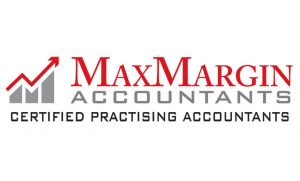Australians lose huge chunks of money every year because they are unable to produce bills of expenses for claiming the deductions. This casual attitude toward record-keeping costs huge in terms of tax planning.
The basic habit of record keeping helps to save huge:
At the time of filing of return of income, if the ATO questions any of your claims for the deduction, you can easily present to them the bills for expenses incurred. By keeping up-to-date records you can claim all the deductions you are entitled to and save huge tax amounts.
Not only does this record-keeping habit help you save tax but it acts as proof of your income and expenditures. You need to furnish these details when you think about purchasing property, seeking financial advisory or increasing insurance. Thus, good record keeping helps in the proper management of not only the tax but several other areas of life as well.
Incomes and expenditures that need to be recorded:
Below is an extensive list of the receipts and expenses which must be well recorded by an individual for claiming tax deductions. The list is highly extensive and all items listed might not apply to everyone.
Incomes to be recorded:
- Dividend income
- Salary/wages
- Interest on investments
- Income from managed funds
- Allowances
- Rent from property
Appropriate receipts must be received from employers/ landlords/ fund managers.
Tax-deductible expenses:
- General Expense
- Fees of the tax agent including a fee for the filing of tax return
- Donations for charity
- Private health expenditures
- Income protection costs
General work-related expenses
- license/certificate fees
- union fees
- membership fees
- gifts
Education expense
- Course fees including textbooks
- expense on accommodation and meals when staying away from home for work
Work-Related travel costs
Subscription to Professional libraries and work-related magazines
Work-related equipment purchase or lease
- Calculators and electronic organizers
- Computer-related consumable items
- Computers and laptops
- Ipad & similar small electronic equipment
- Mobile phones and related accessories
- Required software for performance of job
- Briefcases and carry-bags
- Sunglasses and other safety equipment
- Technical instruments required for job performance
- Tools of your trade
Note: for purchases over $300, the depreciation value can be claimed rather than the purchase price in the next return.
Work-related travel
- Toll charges
- Personal car or other vehicle maintenance costs
- Parking Fees
- Public transport like bus or train fares
- General travel expenses, including expenses for booking flights, taxis, etc.
- Accommodation and meals at the place of stay
Home office expense
- Office equipment
- Stationary and postage expenses
- Desks, chairs and other office furnishings
- Cost of working at home including the cost of telephone, internet, electricity, etc.
Clothing purchase and maintenance
- Uniform with the logo of the organization
- Protective clothing
Laundry expense for maintenance of work uniform.
Newly acquired asset costs eg. a rental property
- Expenses incurred on rental properties or investments.
Records of recently disposed or sold assets
Expense records related to any disability aids, attendant care or aged care
Time for which receipts records need to be maintained:
If you fall in any of the below categories, it is advisable for you to keep the records for at least 5 years:
- You claimed a deduction for depreciation, ie, a decline in the value of your asset in the past.
- You have acquired or disposed of an asset recently.
- You are in dispute with ATO regarding some claims.
For other taxpayers, it is advisable that they maintain records for at least 2 years.
“Must follow” record-keeping habits:
Be it electronic spreadsheet recording or age-old pen-paper formula, below is a list of some “must-do” things while recording your income and expenditures:
- Organize things properly: to claim your deductions right, it is important for you to organize all tax-deductible expenses in the right place in the right chronological order, ie, from newest to oldest. By doing this you save yourself the effort of fumbling through piles of bills and receipts at the time of filing the return. You can use colour codes for better understanding and differentiation.
- List down the tax deductions: you need to be smart enough to list down all the tax deductions which you are eligible for. You need to keep a track of expenses of all kinds and the total amounts of deductions available for them.
- Backup the receipts: it’s a good idea to keep a scanned copy or a photograph of each receipt. Electronic copies are better than physical ones in every sense:
- They do not fade or get torn
- Easy to attach with return
- Easy to store and manage
- Is it a perfect replacement in case you misplace the original?
- Keep proof for tax-deductible expenses: you can claim a deduction for your expense only when you are able to provide proof of purchase. So, you need to collect the bills for any expense you think might help you save tax.
Learn more about it, Ask our Expert Tax Accountants or set up an appointment with an Accountant to deal in a face-to-face meeting.
Max Margin Accountants is a registered accounting firm based in Melbourne. We specialize in helping our clients with a full array of Business Advisory, Taxation and Accounting services. We help businesses in all industries and sectors including Automatic Mechanic, Hotel and Bar, Barber & Hair Dresser, Car Wash, Home Builder & Architecture, Cafe and Coffee Shop, Cleaner, Computer & IT Industry, Family Day Care, Gym and Personal Trainer, Small Businesses, Medical Practitioner, NDIS Business, eCommerce, Property Investors, Tradies and Taxi Drivers.
Last Updated on October 20, 2022









